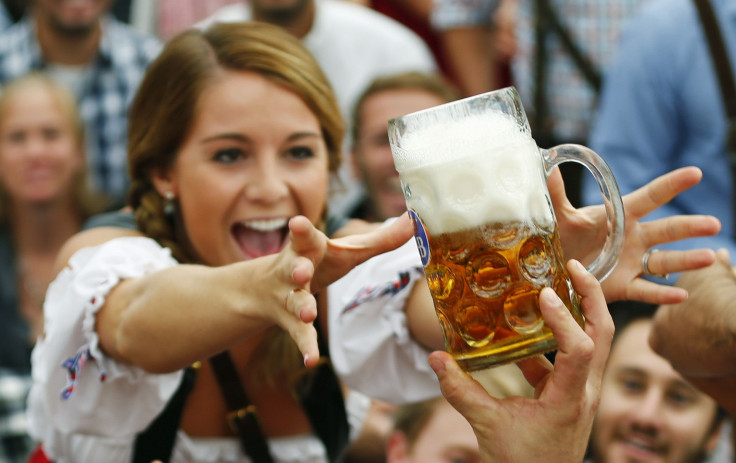Genetic Variation Influences How Sweet Or Bitter Alcohol Tastes To You

A simple truth you can bank on: Some people prefer to eat their calories, while others would rather drink them. Now, a new study examines the relationship between alcohol-related sensations and genetic variations related to taste perception. As you may expect, the researchers found that some people experience more bitterness and less sweetness when drinking alcohol, and this directly relates to the genes they've inherited. "Ours is the first study to show that the sensations from sampled alcohol vary as a function of genetics," said John E. Hayes, assistant professor of food science at Penn State University.
Sip & Spit Vs. The Swab
For the study, a group of researchers led by Hayes genotyped 93 Caucasian participants (58 women and 35 men), between the ages of 18 and 45, for 16 single nucleotide polymorphisms (or SNPs pronounced snips). In particular, they focused on two bitter receptor genes — taste receptors type 2 member 13 (TAS2R13) and type 2 member 38 (TAS2R38) because both had previously been linked to alcohol intake. Next, participants were instructed to rate alcohol samples they tasted in two separate ways: a whole-mouth, sip-and-spit; and a cotton swab on the back of the tongue.
The researchers discovered when people taste alcohol under these admittedly wonky laboratory conditions, the amount of bitterness they experience differs, and these differences link directly to the version of a bitter receptor gene they have inherited. Similarly, burning sensations are perceived differently based on genes. "People may differ in the sensations they experience from a food or beverage," Hayes said, "and like color blindness, these perceptual differences have a biological basis."
Before you leap to the conclusion that anyone who drinks excessively must do so because they like the taste more than other people, it's best to think twice. According to the researchers, their study must be considered “provisional until replicated.” Even more importantly, they warn it is difficult to disentagle the implications of their research because the choices we make about what we eat and drink — and how much — are facets of a very complex behavior process involving many different variables.
"Biology is not destiny," Hayes explained. "Some individuals may learn to overcome their innate aversions to bitterness and consume excessive amounts of alcohol, while others who do not experience heightened bitterness may still choose not to consume alcohol for myriad reasons unrelated to taste."
In the end, food and beverage choices are exactly that: choices.
Source: Allen AL, Hayes JE, McGeary JE. Polymorphisms in TRPV1 and TAS2Rs associate with sensations from sampled ethanol. Alcoholism: Clinical & Experimental Research. 2014.



























